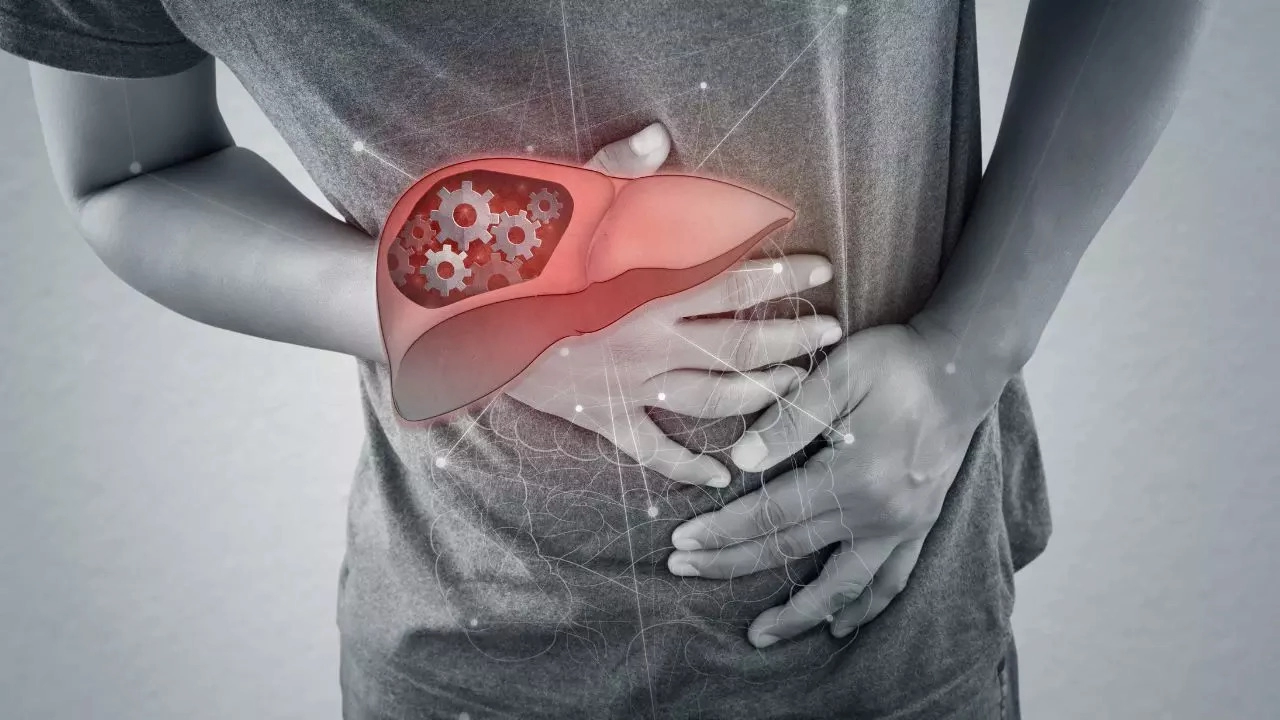News
4 In 10 U.S. Adults Suffer From Fatty Liver Disease; Know The Risk Factors And Ways To Prevent It

4 In 10 U.S. Adults Suffer From Fatty Liver Disease
A new research published in the journal Nature Communications Medicine found that obesity, alcohol use and other factors are driving up rates of fatty liver disease among American adults. By 2018, federal data showed that 42% of adults had some form of fatty liver disease which is higher than prior estimates, according to a team led by Dr. Juan Pablo Arab who is a liver specialist at Virginia Commonwealth University’s Institute for Liver Disease and Metabolic Health, in Richmond.
According to a report in the U.S. News, Hispanic adults were at especially high risk, the team noted, with nearly half (47%) affected. Arab’s team explained that fatty liver disease comes in many forms but involves the slow buildup of fat deposits within the liver.
There are three main kinds of fatty liver disease: metabolic dysfunction-associated steatotic liver disease (MASLD, caused by metabolic factors such as obesity and diabetes), alcohol-associated liver disease (ALD) and a combination of both syndromes, called MetALD.
The new study was based on 2017-2018 data from the National Health and Nutrition Examination Survey which looked at the health of 5,523 adults. MASLD is by far the most common form of liver disease which affects 42% of adults. ALD and MetALD affect much lower percentages which is 1.7% and 0.6% of adults, respectively.
Rates of fatty liver disease were more common in men than women and it increased with age. The high rate of MASLD among Hispanics was surprising, given that one 2014 study found a much lower rate of Hispanics, 29%, had the disease at that time.
The researchers say genetics, as well as relatively high rates of obesity and diabetes, could explain why Hispanics are especially prone to MASLD. The researchers say that obesity and type 2 diabetes are key factors that are driving the surge in MASLD cases.
The researchers said that about 65% of overweight adults have MASLD which is rising to 90% among morbidly obese people. At the same time, up to 70% of patients with type 2 diabetes also have MASLD.
Arab in a university news release said, “This study highlights a significant health issue that affects a large portion of the U.S. population, and it shows that certain groups are at a higher risk. We hope these findings will guide more targeted health interventions to reduce the burden of liver disease, especially in high-risk communities.”
Risk Factors Of Fatty Liver Disease
There are several diseases and health conditions that can increase your risk of fatty liver disease. Here, take a look at them.
- Family history of fatty liver disease or obesity
- Growth hormone deficiency, which means the body doesn't make enough hormones to grow
- High cholesterol
- High levels of triglycerides in the blood
- Insulin resistance
- Metabolic syndrome
- Obesity, especially when fat is centred in the waist
- Polycystic ovary syndrome
- Obstructive sleep apnea
- Type 2 diabetes
- Underactive thyroid
- Underactive pituitary gland.
Tips To Prevent Fatty Liver Disease
- Maintain a Healthy Weight: Aim for a balanced weight as even moderate weight loss can reduce liver fat.
- Follow a Liver-Friendly Diet: Focus on a diet that is high in fibre, vegetables, fruits and whole grains and low in saturated fats, refined sugars and processed foods.
- Limit Sugar Intake: Reduce sugary drinks, snacks and high-fructose corn syrup as excess sugar can convert to fat in the liver.
- Physical Activity: Aim for at least 150 minutes of moderate exercise per week, like brisk walking, cycling or swimming.
- Avoid Alcohol or Limit Consumption: Since alcohol can worsen liver health, avoid it or stick to recommended guidelines if you choose to drink.
- Be Cautious with Medications and Supplements: Some medications and supplements can strain the liver, so take only as directed and consult a doctor about any new supplements.
- Monitor Blood Sugar and Cholesterol Levels: High blood sugar and cholesterol levels can increase liver fat so regular check-ups can help in maintaining these within normal ranges.
- Regular Health Screenings: Routine blood tests can help track liver health, especially if you have other risk factors.
Get Latest News Live on Times Now along with Breaking News and Top Headlines from Health and around the world.
Our Blogs
Our Recent News

Deadly Listeria Outbreak Linked To Ready-To-Eat Meats: California Infant Dies, 10 Others Sick
Deadly Listeria Outbreak Linked To Ready-To-Eat Meats: California Infant Dies, 10 Others Sick (Image...

Are You Drinking Poison? Toxic Chemical Found In The US Tap Water Affecting Millions
Are You Drinking Poison? Toxic Chemical Found In Us Tap Water Affecting Millions (Image Credits: iSt...

Friends Share More Than Secrets—They Share Gut Microbes, Says Yale Study
Friends Share More Than Secrets—They Share Gut Microbes, Says Yale Study (Image Credits: iStock) Fri...

